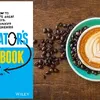‘Let uncertainty fuel your creativity’–DesignUp 2022 speaker Lauren Celenza on the process and power of design
As a media partner for the upcoming DesignUp 2022 conference, YourStory presents speaker insights in our first preview article.
Lauren Celenza is an independent UX designer, writer, and educator based in Seattle. She is speaking at the DesignUp 2022 conference in Bengaluru on September 17-18. As media partner, see YourStory’s earlier coverage of DesignUp conferences and sessions from 2021, 2020, 2019, 2018 and 2017.
See also YourStory’s Book Review section with takeaways from over 340 titles, and our d-Zen (‘Design Zen’) section for more design resources.
Lauren was earlier a Design Lead at Google, where she led a global team towards making Google Maps inclusive for two-wheelers and public transit. She also served as an early member of the Alphabet Workers Union, and petitioned for the Silenced No More Act in Washington state in 2022.
Lauren teaches design and ethics at Harbour.Space University in Barcelona and Bangkok and writes the newsletter, How to Work in Tech Without Losing Your Soul. Through design consulting, team training, and individual coaching, she advises leaders and organisations worldwide, with a focus on relationships to environments, people, and communities.
Lauren joins us in this chat on creativity, design, ethics, and responsibility.
Edited excerpts below:
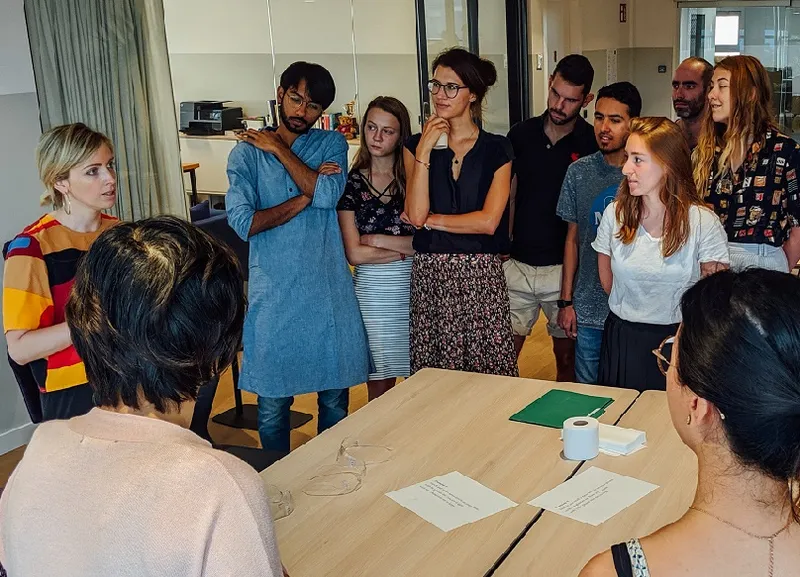
Lauren Celenza with students
YourStory [YS]: That’s quite a creative streak you have–from UX to ethics! How did that come about?
Lauren Celenza [LC]: I think I’ve always been fascinated by how the world is shaped, who it’s shaped for and not shaped for, and who holds power in shaping it.
I suppose this type of curiosity naturally translates to an ethics lens. But it wasn’t until I entered the tech field that my curiosity for ethics deepened, because I was shocked by my own power and responsibility in the world as a designer.
I hope that as designers, researchers, writers, and engineers, we advance our field by becoming acutely aware of how we’re shaping the world around us, and the powerful effects our ideas have on communities, families, businesses, and environments over time.
Everything we create starts with a set of principles, codes, and politics, whether it’s made explicit or not. The question is: what are those principles meant to do? And who are they here to serve?
ALSO READ
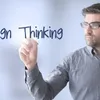
[YS]: What have been some of your experiences with failure and mistakes? How does a creative person learn, cope, and move on?
[LC]: Failure and mistakes can be a painful part of the human experience, and in the midst of something heavy like that, it’s easy to forget that it’s something everyone goes through, whether you see it on social media or not.
It’s also one of the most powerful parts of the human experience, the fact that we all have the capacity to learn, to commit to doing it differently, to move on, and to let ourselves grow. But it’s hard to see this when you’re going through it, especially if it’s a failure with high stakes, and that’s why building a strong support system with people you trust is critical.
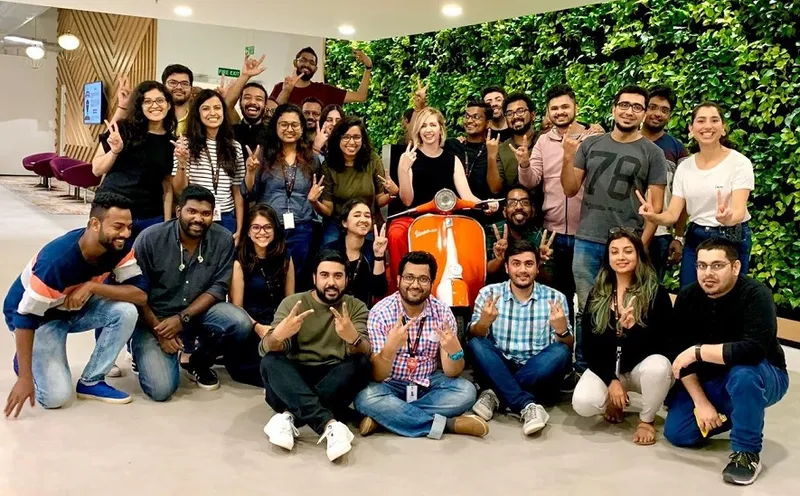
Lauren Celenza with Swiggy India team
[YS]: Many of our readers are tech startups. What is your advice to them on when they should start seriously integrating UX in their journeys?
[LC]: From the beginning, before you even start the startup. Why? Because if no one cares, wants, needs, or knows how to use the product or service you’re building, and it doesn’t match what your audience values, then all that effort will be wasted.
And it will be costly. In a world where there’s an app for nearly everything, competitors abound, and we’re all facing some level of information fatigue on a daily basis, startups can’t afford to go back and integrate UX later.
Maybe that was the case ten years ago, but it’s certainly not the case now. Invest in UX early and often.
[YS]: Is there a particular age when people are most creative, or can the creative bug strike you at any time?
[LC]: I don’t think there’s a particular age when people are most creative, but I do think that for creativity and innovation to flourish, you have to figure out a way to maintain a fresh perspective on the problem.
Hiring new people on a team can certainly help with this, but at an individual level, if you’re staring at the same problem all day long, or talking about it all day long in meetings, you’re at risk of losing a fresh perspective on it.
The three observations I’ve consistently witnessed over the years–across corporations, startups, nonprofits, and agencies–is that teams gain a fresh perspective when they take breaks; test out the product in a new environment; and go outside to meet face-to-face with their customers and/or users.
[YS]: Seeing urban pollution, drought and flooding these days, what are your thoughts on redesigning habitats and lifestyles?
[LC]: We’ve reached a point on this planet where we have no choice but to redesign habitats and lifestyles. While there’s a lot of enthusiasm and funding going towards these efforts, the trick will be whether we can maintain our focus and direct our energy and money in the right places.
To find that focus, we need to invest in research to understand the nuances of the problems, especially the communities who are most affected by urban pollution, deforestation, drought, flooding, and viruses.
How does this impact their lives and livelihoods? Who are the people already doing the hard work to redesign these systems? How can you better support them or partner with them? And are you willing to dismantle systems that may be designed to serve you?
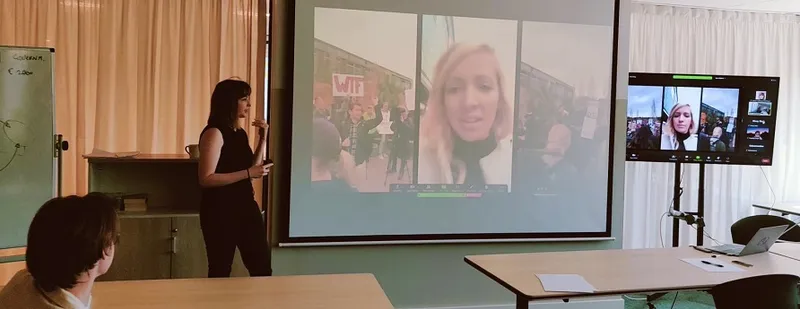
Lauren Celenza teaching about protesting
[YS]: What new projects or activities are you involved in these days?
[LC]: Recently, I’ve worked on design and research projects, workshops and webinars with the World Resources Institute (climate and land restoration), Coursera (online learning), PlatformAbuse.org (trust & security), Hmnty Cntrd (wellbeing and ethics), the Swiggy design and product team, among others.
I’ve coached individual clients and professionals in tech to help them advance or change their career, and enhance their wellbeing. Last June, I taught a new course at Harbour Space University in Barcelona called, ‘Design in a World of Chaos and Uncertainty.’
It was a really fun course, and the best part was that there were over 20 countries represented in one hybrid classroom. To see students come together like that from around the world was profound. Their design projects, and their ideas for reshaping the world, were brilliant.
I’ve also been writing a lot, which has helped me to gain a broader perspective on work and life. I write the newsletter, 'How to Work in Tech Without Losing Your Soul,' where I report on the messy relationship between humanity and technology and pathways towards a healthier, inclusive, and transparent industry.
Last March, I petitioned for the Silenced No More Act in Washington State, which became the second in the nation to pass this bill, barring employers in the state from using NDAs to prevent workers from talking about instances of harassment and discrimination, retaliation, sexual assault and wage violations.
There’s a lot that needs to be changed in the US right now. It’s stressful and scary, but what gives me hope is that there’s a lot of bold, creative, and collective energy emerging, and we need it. I want to do anything I can to be a part of that, in the US and globally.
[YS]: What are some must-read books about UX or ethics that our audience should have?
[LC]: I’m going to give an unexpected answer here, which is that I’d love for more people, especially anyone working in tech or shaping the world at broad scale, to read more books in the genres of memoir and autobiography, from writers that hold a different identity or experience than your own.
These types of books offer depth and insight into the human experience, and it’s also one of the most powerful ways to expand our perspective as tech makers. This feels especially important if we want to create a more harmonious relationship between technology and humanity.
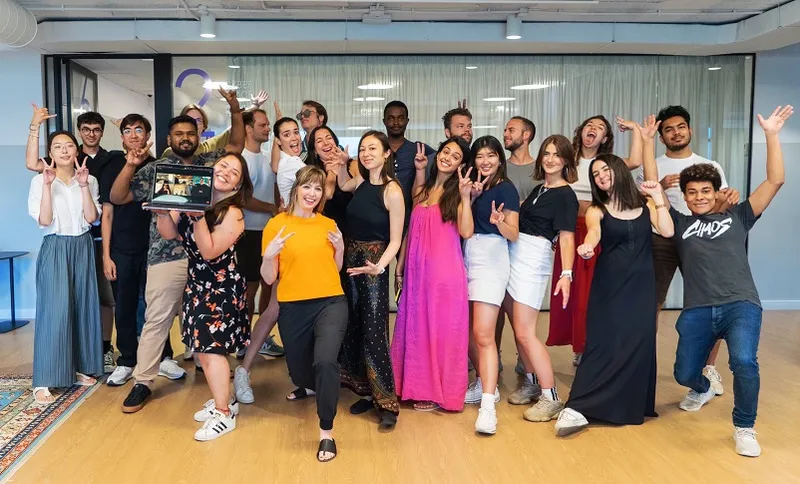
Lauren Celenza with students
[YS]: How should big-tech firms be showing more responsibility, and what can the rest of us do to ensure they are transparent, accountable and ethical?
[LC]: My conversations with friends, family, and colleagues used to be about an exciting new product or feature that a big tech firm had launched; now the conversations have turned towards privacy, data, and ethics.
What data do they actually have access to? What do they know about me? How are they using that data? How are they committing to safety and security? Equity and inclusion? Are they actually investing in these areas, and if so, what are their plans? What affects are they having on communities across the world? How are they treating their employees and are they acknowledging their labour unions?
When you’re working on products that have scaled to a billion people, there’s a lot at stake. I’d love to see more tech workers at big tech firms meeting face-to-face with the people, communities, and cities impacted by their products. We move so fast in this industry that we rarely witness the effects of what we launch, whether it’s good or bad, and that needs to change.
But as a tech worker, it is very risky to try to reform or dismantle systems that are designed to serve you and your boss, so let’s skip to what the rest of us can do, because tech workers, especially at big tech firms, need your help.
As for the rest of us? There’s a lot we can do. Support labour/trade unions. Read about the history of unions. Publicly support the tech workers who are speaking up and protesting injustice; they’re taking a risk to do so, and they are often women. Sign the petitions. Know the country where a tech product originated, and know the labour, antitrust, and privacy laws (or lack thereof) in that country.
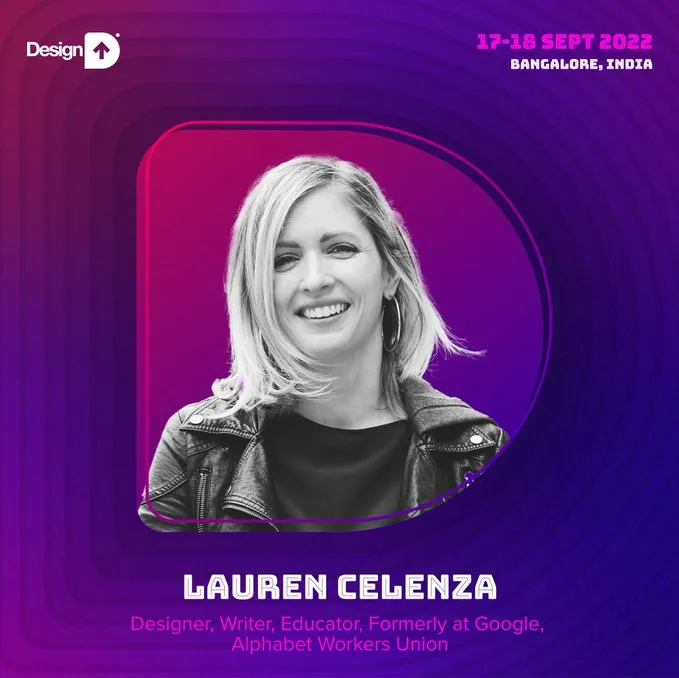
Put pressure on lawmakers. Vote if you can. Donate to organisations like The Distributed AI Research Institute and other spaces where independent, community-rooted research is happening, free from Big Tech's influence. Know that you have a lot of power as a consumer/user.
Make your tech habits active, not passive. If you don’t feel comfortable using a product made by a big tech firm, find ways to not use it, even if that means changing your habits a little bit over time. Then tell your friends and family. Invite dialogue.
[YS]: What is your parting message to the aspiring entrepreneurs and writers in our audience?
[LC]: As a human being living in this world today, time and attention are our most precious resources. Don’t be afraid to move on from a place, a job, a relationship, a habit, a project, or even an app that is burning you out.
Let uncertainty fuel your creativity. Your time and attention, and where you place it, matters.
Edited by Affirunisa Kankudti



![[Year in Review 2021] From strategy to skills - 65 quotes on the importance and impact of design](https://images.yourstory.com/cs/2/28b451402d6a11e9aa979329348d4c3e/Creativity-2b-1640496366983.png?fm=png&auto=format&h=100&w=100&crop=entropy&fit=crop)
![[Year in Review 2021] How women entrepreneurs pivoted during the pandemic and saw tangible results](https://images.yourstory.com/cs/4/8e7cc4102d6c11e9aa979329348d4c3e/Cover-05-1639653048479.png?fm=png&auto=format&h=100&w=100&crop=entropy&fit=crop)

